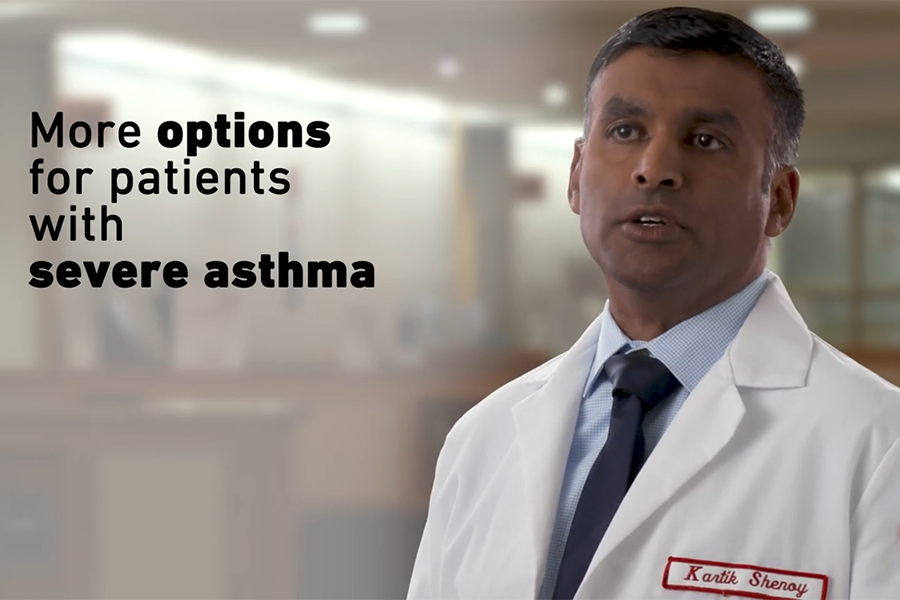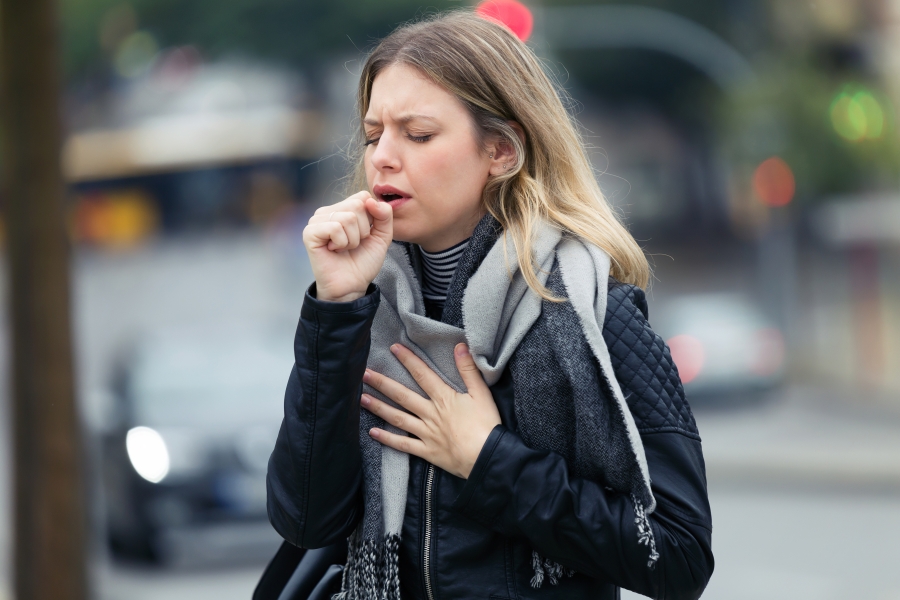There is no cure for asthma, but it can be treated and controlled.
Lifestyle Changes
The most effective way to control asthma is to manage and avoid triggers. This involves learning to recognize triggers and tracking your symptoms. You can use a peak flow meter to track how well your lungs are functioning. Tracking your symptoms will allow you to learn what things make your symptoms worse.
Other things you can do to manage your asthma include:
- Working with your doctor to get treatment for other conditions that can interfere with controlling your asthma
- Avoiding most asthma triggers. It's important not to avoid physical activity, even if it triggers your asthma. Physical activity is important for overall health. Speak to your doctor about strategies to help you stay active
- Creating an asthma action plan with your doctor and other healthcare providers. An asthma action plan can help avoid asthma triggers, track your asthma control and identify issues, respond to symptoms that are getting worse, and seek emergency treatment when needed
Types of Asthma Medicines
There are different types of asthma medicines that help with different types of asthma symptoms. Generally, asthma medicines are divided into two groups: long-term control medicines and quick-relief medicines. While every person with asthma needs quick-relief medicine, many do not need long-term control medicine.
Long-Term Control Medicines
Long-term control medicines include:
- Inhaled corticosteroids: reduce inflammation to help prevent asthma symptoms. Inhaled corticosteroids are inhaled directly into the lungs using an inhaler. They are generally safe when you take them exactly as your doctor prescribed. However, inhaled corticosteroids can cause side effects. The most common side effect is an infection of the mouth called thrush. When taken for long periods of time, inhaled corticosteroids can raise your risk for osteoporosis (weakening of the bones) and cataracts (clouding of the lens of your eye).
- Inhaled long-acting beta2 agonists (LABAs): open the airways. LABAs should not be used for long-term asthma control on their own; they should be combined with inhaled corticosteroids.
- Combination inhalers: combine a long-acting beta agonist with a corticosteroid to help manage asthma symptoms.
- Leukotriene modifiers: help prevent the chain reaction that increases inflammation in the airways. Leukotriene modifiers are taken by mouth.
- Theophylline: helps to open the airways. Theophylline is taken by mouth.
Quick-Relief Medicines
Quick-relief medicines work fast to help relieve asthma symptoms when they flare up. Quick-relief medication should be taken as soon as you notice asthma symptoms. You should carry your quick-relief medicine with you in case you need it.
Quick-relief asthma medicines include:
- Inhaled short-acting beta2-agonists (SABAs): relax the muscles around the airways when asthma symptoms are triggered. This causes the airways to open up so that air can flow through them more easily.
- Ipratropium: works quickly to relax the airways, making it easier to breathe. Ipratropium is usually used for COPD or emphysema, but it can also be used to treat asthma.
- Oral or intravenous corticosteroids: relieve inflammation of the airways caused by severe asthma. They can cause serious side effects when used over longer periods of time, so they are generally used to treat severe asthma symptoms on a short-term basis.
Quick-relief medicines cannot replace long-term control medicines. If you're using your quick-relief medicine more than 2 days each week, you should speak with your doctor about your asthma. You may need to begin taking long-term control medicine, or adjust your asthma action plan in other ways.
Other Medicines
Your doctor might prescribe other medicines if your asthma is caused by or made worse by allergies/inflammation:
- Allergy shots: injections that help to gradually reduce your immune system’s reaction to certain allergens over time. Usually, you receive shots once per week for two to three months, and then once per month for three to five years.
- Omalizumab: helps prevent reactions to asthma triggers like dust or pollen. Omalizumab is given as an injection once or twice per month and is often used when other asthma medications have not been effective.
- Meopolizumab: a newer drug that reduces the level of eosinophils (cells that trigger asthma). This reduces airway inflammation and improves asthma control.
When to Call Your Doctor or Seek Emergency Help
While most people who have asthma are able to manage their symptoms, some people with asthma will need medical attention.
You should call your doctor for advice if:
- Your medicine doesn’t ease the symptoms from an asthma attack.
- You record a peak flow measurement that is less than half of your highest recorded peak flow number.
You should call 911 for emergency assistance if:
- You are having trouble speaking and walking because you are out of breath
- You have blue lips or fingernails
Schedule an appointment or call 800-TEMPLE-MED (800-836-7536) today.




